|
Word Gems
exploring self-realization, sacred personhood, and full humanity
Editor's 1-Minute Essay:
Repression
return to "Repression" main-page
“It isn't normal to know what we want. It is a rare and difficult psychological achievement.” Abraham H. Maslow
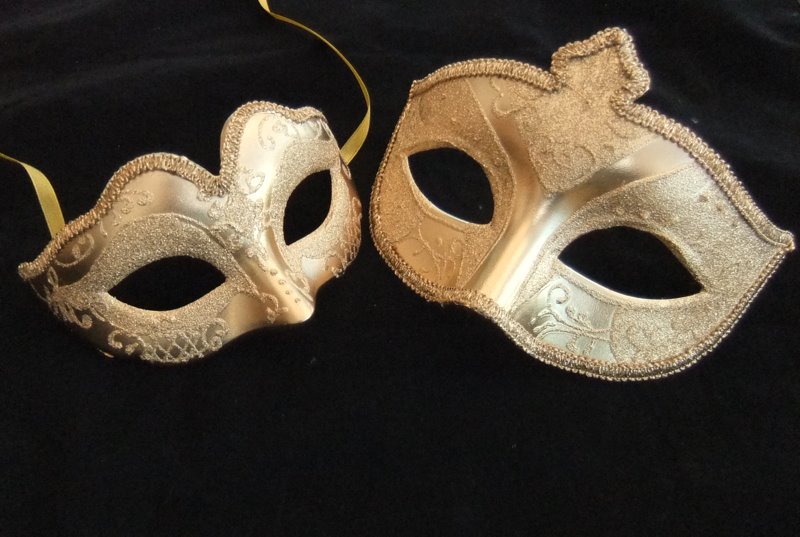
For more than 30 years I didn't listen to music. While driving, I would never turn on the radio. During that time, it never occurred to me that I might be hiding from something:
"Words make you think a thought. Music makes you feel a feeling. A song makes you feel a thought." Yipsel Harburg
As I would come to admit, but only in my late 50s, there were thoughts and feelings, images of loss, that I wanted to keep buried. Instinctively and subliminally, I well knew that music would open long-barred doors in my head. I refused to go there.
|
you don't really care for music, do you
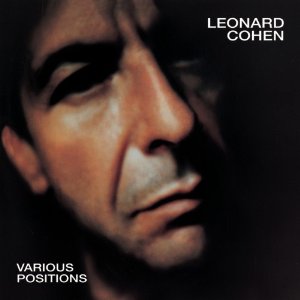
Leonard Cohen, Hallelujah
I've seen your flag on the marble arch
But love is not a victory march
It's a cold and it's a broken Hallelujah
Well there was a time when you let me know
What's really going on below
But now you never show it to me, do you?
But remember when I moved in you
And the holy dove was moving too
And every breath we drew was Hallelujah
Hallelujah, Hallelujah
Hallelujah, Hallelujah
There is a line in Leonard’s lyrics: "But you don't really care for music, do you?" Speaking to his immature and wayward lover, he does not mean that she doesn't enjoy a good melody. He is speaking of music as doorway to elevated consciousness; that expedited trip to the foothills of heaven itself.
The lady in Leonard's song does not allow music to free her soul in the manner it was meant to do. She's hiding from something.
Music will instruct, will roll back the heavens of one's past life, offering insight and hidden meaning, as can few pedagogues; but she is afraid, withdrawn, not willing to be thus musically and mystically taught; not willing to tell him "what's going on below."
Editor's note: See the article "Spirituality, Part III" for a discussion of "following bad feelings down the rabbit hole," music as aid to unlocking the long-barred doors of the mind.
|
During those 30 years in the wilderness, rather than the radio, I listened to hundreds, possibly, thousands of hours of taped college lectures on many subjects; this, in addition to my 10 years in university classrooms. As I see it now, distraction was very important to me - a sedation, incessant information as bromide.
My neurosis, a well-settled repression, I believe, would have continued to this day but for a lightning-bolt from heaven. Norma, a psychic-medium, delivered this message to me:
"There's something in the back of your mind that is always there, and it bothers you, but you never talk about it."
She did not know the details, but I did, and I immediately bristled at this, what I considered to be, an invasion of privacy of my own mind. Instantly, I realized that I'd been repressing, for long years, not just information about the past, but, far worse... I'd been repressing myself.
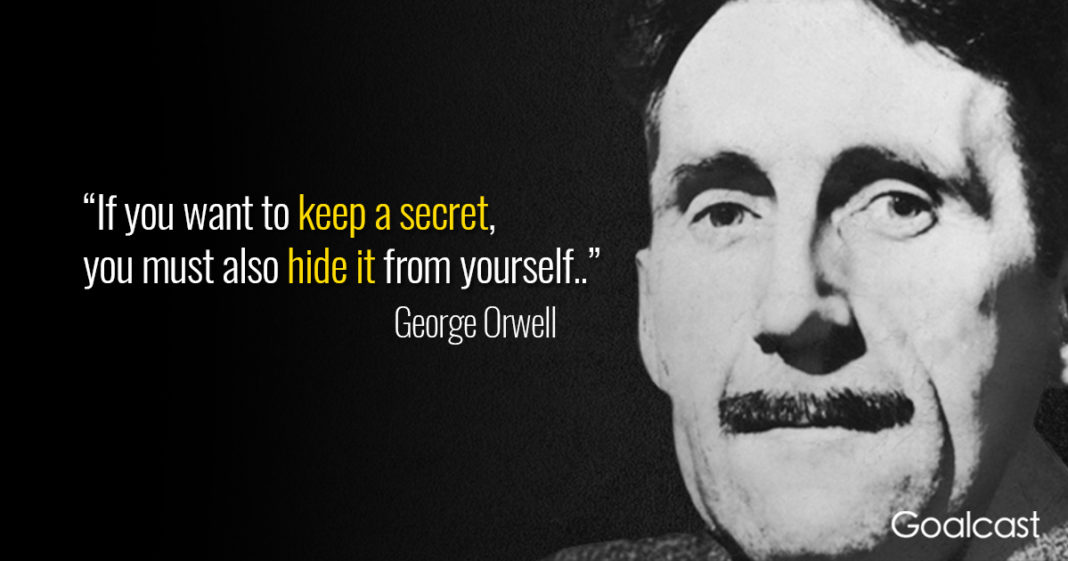
repression builds civilization
The great psychologists go so far as to say that "man creates culture and society in order to repress himself." I find no hyperbole here.
Many, almost all, of society's institutions, expressions of Hoffer's "mass movement psychology," serve a clientele intent upon hiding from the harsh realities of this world; the most troubling of all, the fear of death.
Of course, if we were to ask the average, seemingly somewhat-well-adjusted individual if he or she thought this statement regarding repression building civilization to be true, a protest of denial would be forthcoming. Should we expect otherwise? In the nature of the case, we've repressed the realization.
During my "30 years in the wilderness," if someone had suggested that not listening to music could be a sign of dysfunctionality, that befogging myself with endless didactic lecture might be pathological, I would have haughtily rejected such evaluation. I had created my own private "institution" and "civilization" which protected and sustained me, and I could defend the merits of these, my own way of life, with cogent reasoning; but, as one put it, with "reasons that Reason shall never know."
never more defenseless
Freud and Brown lead us to understand that we are "never more defenseless against suffering" than in our love relationships. Our secret desires, especially those of the "true self," dominate the psyche and will not surrender, not ever:
“Unexpressed emotions will never die. They are buried alive and [thus repressed] will come forth later in uglier ways.” Sigmund Freud
|
Albert Einstein: "Your imagination is your preview of life's coming attractions."
Editor's note: "Unexpressed emotions," as Freud said, "will never die," but only if they represent an authentic, enduring part of ourselves, not the evanescent cravings of the egoic "false self."
But if our desires correspond to what Silver Birch termed the hidden "soul pledges," then, in truth, Einstein's assertion comes alive, and for all time. Our desires, and what we imagine for them, become preview of our wonderful future.
|
"They long to be with the person they love but refuse to admit openly. Some are afraid to show even the slightest sign of affection because of fear. Fear that their feelings may not be recognized or, even worse, returned. But one thing about human beings puzzles me the most is their conscious effort to be connected with the object of their affection even if it kills them slowly within.” Sigmund Freud
"Our real desires are unconscious." Norman O. Brown
"The realm of the unconscious is established in the individual when he refuses to admit into his conscious life a purpose or desire which he has, and in doing so establishes in himself a psychic force opposed to his own idea. This rejection ... is repression." Norman O. Brown
|
But, O that I were young again, and held her in my arms!
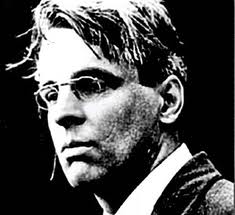
This most-fervent sorrowing of William Butler Yeats, one of great poets of the 20th century, reveals an open-wound trauma in his life. He had married late, wanting a son to perpetuate the family line, but was very unhappy with his much younger bride. The one whom he truly loved was not available; even so, he actually wrote to his true love during his honeymoon! How tragic.
special note: With great interest, I learned that Yeats spent much of his life pursuing evidence for the afterlife; further, he credited some of his insights to sources from the astral realms.
|
Individualized desires, representing the "true self," will not forever be swept under the rug of the subconscious; a day of reckoning hails us, and in that day of truth, summoned before the tribunal of one's higher self, repression will no longer work, will no longer save us; in that day, we shall be required to stand in the open sunny air and finally act on existential desire.
“Out of your vulnerabilities will come your strength.” Sigmund Freud
“How bold one gets when one is sure of being loved.” Sigmund Freud
|
George Harrison on repression:
you don't realize... how was I to know... I didn't realize... that's when it hurt me... please remember...
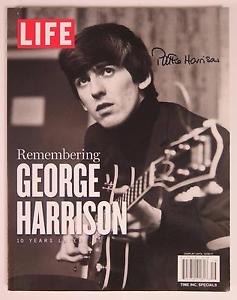
I Need You
"you don't realize how much I need you, love you all the time and never leave you... said you had a thing or two to tell me, how was I to know you would upset me? I didn't realize, as I looked in your eyes, I need you, I need you, that's when it hurt me... please remember how I feel about you, I could never really live without you..."
|
|
Elena Ferrante, Those Who Leave and Those Who Stay: “...in the face of abandonment ... not even a very orderly mind can endure the discovery of not being loved.”
Sue Merrell, Great News Town: “When somebody you love stops loving you and walks away, it's an insult beyond comparison.”
Editor's note: When love suffers "abandonment," "not being loved" in return, but, instead, receives "the insult beyond comparison," then, as Kairissi and Elenchus would discover, all props are in place not only to engage in stultifying repression but to know its obverse, the searing "madness maddened."
|
the purpose of life
If our truest desires - those of the true self, not the false - though "buried alive," as Freud has it, cannot be expunged from our essential selves, then, I will assert, that this element of permanence and imperishability brings into focus a glimpse of the meaning and purpose of life itself.
"Dreams and neurotic symptoms show that the frustrations of reality cannot destroy the desires which are the essence of our being: the unconscious is the unsubdued and indestructible element in the human soul. The whole world may be against [a person’s secret wishes], but still a man holds fast to the deep-rooted, passionate striving for a positive fulfillment of happiness." Norman O. Brown
The "whole world" might array itself against a man or woman, but one's private and secret hopes for future happiness will not be erased. This kind of insistence upon oneself, against all odds, I feel, can only mean that part of the meaning of life - the greater part, I think - is that of finding one's particular and individualized happiness. The society of Summerland in the afterlife, with its overriding emphasis on personal freedom, is constructed on such sentiment.
Marcia Lee Anderson and Emily Dickinson: we make inward bedlam and will not come out; there is a pain so utter, it swallows being up
Freud commented that after he'd formulated his theories, the fruit of many years of fact-gathering, he was surprised to find his research on display in the works of the great poets.
For example, the writings of Emily Dickinson and Marcia Lee Anderson -- shocking in their perspicacity -- reveal a clarity and profound depth of understanding concerning the human condition; see the focus on repression:
Emily Dickinson
There Is A Pain -- So Utter
There is a pain — so utter —
It swallows Being up —
Then covers the Abyss with Trance —
So Memory can step
Around — across — upon it —
As one within a Swoon —
Goes steady — where an open eye —
Would drop Him — Bone by Bone.
Marcia Lee Anderson
Diagnosis
We multiply diseases for delight,
invent a shameful want, a horrid doubt,
luxuriate in license, feed on night,
make inward bedlam — and will not come out
Why should we? Stripped of subtle complication,
who could regard the sun except with fear?
This is our shelter against contemplation,
our only refuge from the plain and clear.
Who would crawl out from under the obscure
to stand defenseless in the sunny air?
No terror of obliquity so sure
as the most shining terror of despair
to know how simple is our deepest need,
how sharp, and how impossible to feed.
One gasps at the beauty and insight of these writings.
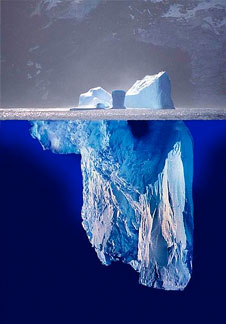
|
the volcano incident

Elenchus. Oh, boy, these phrases, “make inward bedlam and will not come out”, really send me to dismay - fast.
Kairissi. Or, “there is a pain so utter… that an open eye would drop him.”
E. Wow – so much of my life was spent on the periphery of that “pain so utter.” And how I well perceived, subconsciously, that “an open eye would drop" me. For so many years, I wouldn’t admit, to myself, just how much I’d been traumatized by losing you early on. I was so angry in my life and didn’t know why; I wouldn't allow myself to know.
K. We were so afraid to “stand defenseless in the open sunny air.”
E. And, for nearly years 30 years, I wouldn’t even permit myself to listen to radio music in the car; for I knew that if one of the “oldies” love-songs came on, it would send me spinning to dark perdition.
K. Music can unlock those long-barred doors of the soul.
E. I think I'm angry... and I don't want any philosophical answers right now.
K. Alright...
E. In the “consciousness as waves” article, I recounted many incidents from our lives wherein I'd repressed your memory. But here’s one that I didn’t talk about there. I call it my “volcano” incident.

E. It was early in our freshman year. I was at the school building for an evening club meeting. And, next thing I knew, somebody was passing along some gossip. Someone was saying that you had gone out with a senior, a jock, not a nice guy. (sighing) Well… it was one of the great self-learning experiences of my life. My inner spirit just went ballistic.
K. (silence)
E. It’s all so vivid to me, like it happened 10 minutes ago. I can see where I was in the school building. And I was so shaken by this news that I could hardly stand up, was about to vomit. The fact that you had gone out with a goon made it a hundred times worse for me.
K. I think... I just wanted to be accepted.
E. (sighing) I really despise that answer.
K. (silence)
E. But I can still see myself, this moment, needing to leave the building, by the side door, my car was parked right there, near a street lamp. And I sat in the car. I can see myself, hands on the steering wheel, gripping it, and I'm trying to make sense of my explosive “volcanic” reaction. It surprised even me. And I asked myself point-blank, “What is wrong with you, why are you acting this way? Why should you care what she does? She is not part of you, she is not part of your life, she is no concern of yours - is she?” I still recall saying the words "is she?" And I didn’t know, or wouldn’t admit to, the answer.
K. (silence)
E. I remember almost nothing from that whole freshmen year, but I remember sitting in that car and feeling so mad. But, what baffles me most is how could I feel all that, so explosively, but then to quickly brush it all off, to cover it up again -- not just the information but, to repress myself -- and then go on my lackluster way, as if nothing had happened. (sighing) I can hardly believe I did this… or rather, what I did not do. I should have gone to you. I should have realized what was going on “deep within,” I should have said something. But I did nothing.

E. I’m not saying it's right but... how I really feel is... after all this time... part of me is still trying to forgive you... part of me, the not-so-good part, never wants to see you again... I'm aware that I've distorted things, as... you did nothing wrong, I guess, but... it feels like a betrayal...
K. (softly) What do you mean, betrayal?
E. We had all those incidents early on… clear signs that we are something… mean something... to each other... and you yourself came to tell me… but I was still a stupid boy, still far behind you, and you wouldn’t wait for me to grow up, and this enrages me… What I see is an implied contract dishonored, an unspoken meeting-of-the-minds disregarded, a constructive assent violated… and when, finally, my eyes did open… when I finally grew up... I realized that you had betrayed me, and us… even before I’d had my wits about me to issue demurral.
K. (softly) But this happened 60 years ago, Elenchus.
E. There's a part of me that feels it happened 10 minutes ago... and I'm still sitting in that car, boiling and churning... not knowing what to do... and I'm not able to forgive you.
|
how to stop repressing and start living
"How does one transcend himself; how does he open himself to new possibility? By realizing the truth of his situation, by dispelling the lie of his character, by breaking his spirit out of its conditioned prison. … The child has built up strategies and techniques for keeping his self-esteem in the face of the terror of his situation. These techniques become an armor that hold the person prisoner. The very defenses that he needs in order to move about with self-confidence and self-esteem become his life-long trap. In order to transcend himself he must break down that which he needs in order to live." Ernest Becker
There is the fear of death, which is fundamental; but the fear of life is also formidable in its reign of terror.
One solution only will save us - it is to climb out of the "abyss" of repression to "stand in the open sunny air."
|
Editor's last word:
See the article "Spirituality, Part III" for a discussion of "following bad feelings down the rabbit hole," music as aid to unlocking the long-barred doors of the mind.
Also see,
the final maturity: the unlearning of repression
Dr. Ernest Becker: “The flood of anxiety is not the end for man. It is, rather, a ‘school’ that provides man with the ultimate education, the final maturity. It is a better teacher than [this world’s] reality, says Kierkegaard, because reality can be lied about, twisted, and tamed by the tricks of cultural perception and repression. But anxiety cannot be lied about. Once you face up to it, it reveals the truth of your situation; and only by seeing that truth can you open a new possibility for yourself… It is the unlearning of repression.”
READ MORE on the quest for the true self.

K. This is really something, Kierkegaard saying that we can lie to ourselves about reality, we can twist it, but we can’t lie to ourselves about anxiety, we can’t lie about being punched in the stomach.
E. I’m recalling just now, Emily Dickinson’s poem, “I like a look of agony, because I know it's true, impossible to feign.”
K. Elenchus… do you think you’ll ever be able to forgive me?
E. I don’t know… it wasn’t just that one incident, but all the other things, too... But to characterize our problem simply as a need to forgive trivializes the entire issue. The real issue is that I don’t trust you, Kriss. I could say “I forgive you,” and we could move on, but trust is a thornier problem…I don’t mean to be unkind, but I must be honest to ask, how can I know that in the future you won’t “need to be accepted” by some other influence outside our domain? How can I trust you to see us as “enough”? – how do I know that "us" is what you really want? I think trust can be rebuilt, but it doesn’t happen quickly… And I would far rather live alone than to be with someone I do not trust.
|
|

Bible commentators inform us of three classes of teachers in ancient Israel:
(1) the priests of the temple, who explained the Law to the people; (2) the prophets, who received revelations and messages from God; and (3) the wise, or the elders, older men who had learned success principles by living life.
Proverbs is a collection of aphorisms from “the wise.”
In the closing section, chapter 31, we find several verses offering instruction concerning the ideal wife and mother.

Proverbs 31:10 introduces the ideal wife and states that she is worth far more than gem stones or money in the bank.
But in verse 11 we're given a first glimpse of her commendable character:
He has full confidence in her.
Later in this section, many other stellar qualities are outlined, but they're all prefaced by a primary element of relationship with her; simply stated:
He trusts her.
Without this, nothing else matters.
|
|










